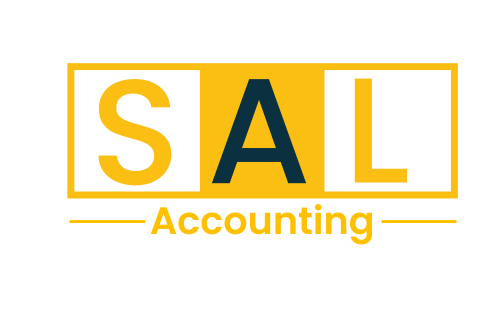Canada has always been a popular destination for US citizens to move there or occasionally work with Canadian companies. It has lucrative earning opportunities, a stunning landscape, and a welcoming culture. Working with Canada is a significant change, especially regarding understanding and navigating the tax system. Because the United States tax system is one of the most complex tax codes in the world. There are fundamental differences between the US and Canada concerning taxation.
So, here are essential tax tips for US Citizen Working for Canadian Company Taxes.
Table of Contents
What Americans Working with Canadian Company should know about US Taxes?
For starters, US green card holders or citizens working in Canada, whether it’s remote, full-time, or occasional work, should continue filing US tax returns each year. You have tax obligations to the US regardless of where you work. This means you are taxed on all your income irrespective of where you have earned. But you can prevent double taxation thanks to the US-Canada Tax Treaty.
Working in Canada will Affect your Taxes
If you are working for a short time or occasionally working with Canadian companies throughout the year, you will have to report that income on your US taxes. As you establish deep financial roots in Canada, the process will get complicated, and you will have more consideration filing US tax returns.
You Will have to Report Canadian Financial Accounts and Assets.
If you have a Canadian bank account with more than $10,000, you are subjected to FBAR filing and reporting requirements. FBAR stands for Foreign Bank and Financial Accounts Report, and the US citizen, corporation, LLC, or estate must file an FBAR report if they have a foreign financial account exceeding $10,000 at any time during the calendar year reported.
Moreover, you may also be subject to the Foreign Account Tax Compliance Act (FATCA) reporting requirement if you have a foreign asset valued over $200,000. The act was made to prevent US persons from financial organizations like banks to avoid US taxes on their global income.
For US Business Incorporation Canada Solution visit Sal Accounting.
Working in Canada also has US Tax Benefits
The good news for US citizens who occasionally or full-time work in Canada is that both US domestic tax law and US-Canada bilateral agreements contain several provisions designed to prevent double taxation on the same income in both countries. It is usually the biggest concern for expats.
The provisions include
● Foreign-earned income exclusion and Foreign housing exclusion: It allows Americans living in Canada to be excluded up to a certain amount of foreign-earned income if they meet specific requirements. It only applies to US citizens living in Canada for at least 330 days during any period of 12 consecutive months.
● Foreign tax credit: It allows Americans to claim dollar-for-dollar credit on Canadian taxes paid. It protects US expats from paying taxes twice on the same income. The foreign tax credit also has certain requirements to qualify.
Beware of US Tax Penalties
If you are tempted to skip the US taxes or additional financial requirements, you will have to pay a hefty price later. US citizens who occasionally or full-time working with Canada will have several specific filing requirements. Some forms are submitted to the IRS, while others are to government departments, including the US Treasury Department.
Canada is one country that complies with FATCA reporting, which means Canada and the US can exchange information about an individual’s financial accounts. So, failing to file the tax returns and report assets can lead to over $10,000 in fines per year.
That’s why it is essential to consult a tax expert to ensure you comply with US tax regulations.
Tax forms for US Citizen Occasional Work with Canadian Company
US residents and green card holders are required to file US tax returns regardless of where they live and work. Here are some commonly used tax forms for Americans working with Canadian companies.
| Form # | |
| Form 1040 | It is the standard US individual income tax return form. All Americans are required to file Form 1040 to report their worldwide income. |
| Form 2555 (Foreign earned income exclusion) | The form is used to claim foreign-earned income exclusion. Only qualifying people can exclude a certain amount of their foreign-earned income from US taxation. |
| Form 1116 (Foreign tax credit) | It allows you to claim a credit for income tax paid in Canada. Consequently reducing their US tax liability. |
| Form 8938 | This form is required for workers who have certain foreign financial assets exceeding a specific threshold. |
| FinCEN form 114 (FBAR) | It is an important form that must be filed if US citizens have a financial interest in or signature over foreign financial accounts with an aggregate value exceeding $10,000 at any point during the calendar year. |
Take Away
If you are a US citizen working in Canada, occasionally, remotely, or full-time, you must remain compliant with US tax obligations. Late filing or failing to file the tax return can lead to severe penalties and fines. So, if you are having trouble understanding the tax implications between the US and Canada, trust Sal Accounting’s expertise and guidance to find your credits and tax-saving opportunities while keeping you in compliance with US tax regulations.
Contact us today and get started on US taxes.
FAQs: US Citizen Working for Canadian Company Taxes
How much foreign income is tax-free in the USA?
For the tax year 2023, the maximum tax-free foreign income is $120,000 per person. The exemption applies only if you work abroad and meet either a bona fide residence test or physical presence test.
What happens if you don’t declare foreign income in the US?
Failing to declare your foreign income or filing a yearly tax return can lead to severe consequences. The US has strict penalties and fines that can go up to 10,000$ per year.

